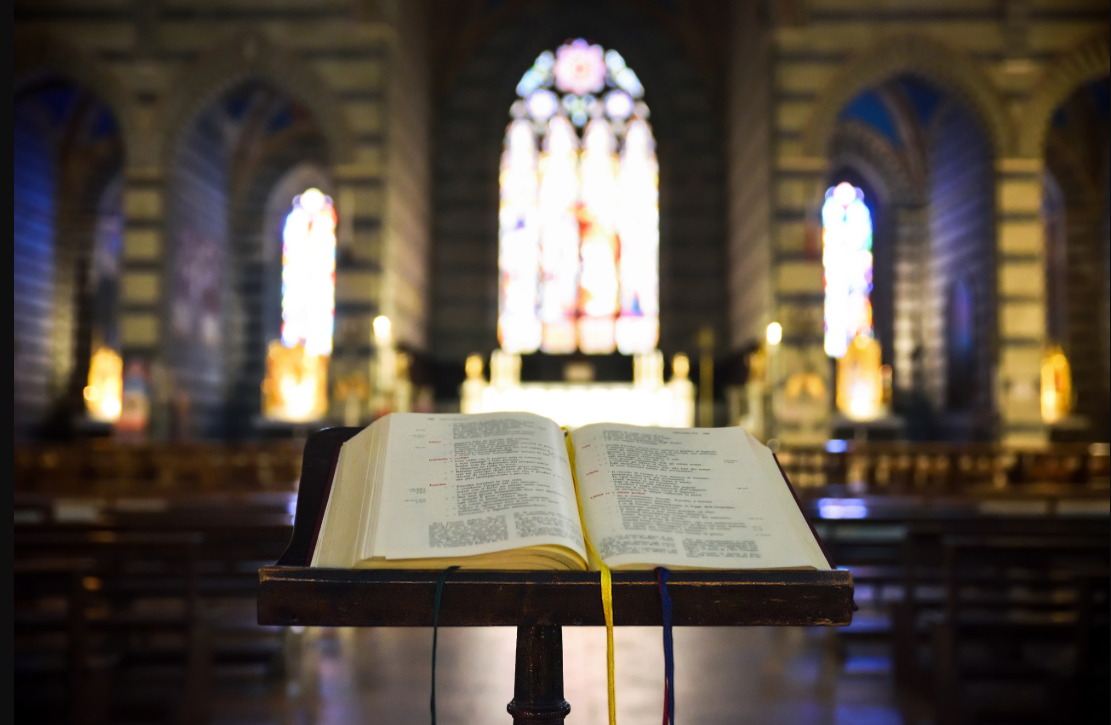Withholding nothing wonderful

The message of how Almighty God creates, redeems, and calls every human life as His own precious treasure forever has changed untold hearts and saved countless lives. Lutherans For Life has completed a fourth decade of equipping Gospel-motivated voices for life, and the conversation continues to grow, declaring and demonstrating the sanctity of life in more congregations and communities than ever before, including high schools and college campuses. Print resources, digital materials, expert consultations, and ongoing conversations have reached some 200,000 individuals nationwide in 2019. Praise the Lord!
Yet we have much to challenge us as next year commences. Here are the biggest ones we see and how we intend to meet them:
Abortion. The deliberate killing of unborn children remains legal for all and reasonable to many across our country. It has prominent public advocates, particularly when those children come with disabilities. We testify instead how science observes human person begins at fertilization; how common sense verifies that ages, appearances, and abilities do not diminish value; and how Holy Scripture insists that God’s labor of creating proclaims every human life special.
Embryo experiments. An estimated 250,000 to as many as 1,000,000 little ones lie frozen in laboratories like prisoners. Vaccines manufacturing, in vitro fertilization, genetic editing, and stem cell collecting endanger them at their most vulnerable. We rejoice that the Gospel of Jesus Christ announces God became incarnate as a human embryo. His labor of redeeming proves every human life precious along the entire spectrum of development, and it comforts each of us in our own weaknesses and darknesses.
Assisted suicide. Nine American jurisdictions allow physicians to diagnose certain persons as better off dead. A doctor can prescribe patients fatal doses of pharmaceuticals if they feel their life has become useless. Even though most medical associations oppose it, “death-with-dignity” enthusiasts are getting organized and subsidized. Their arguments about bodily autonomy are only intensifying pressure on elderly, incapacitated, and chronically afflicted folks. We delight that our Heavenly Father has fashioned human flesh to serve as His Spirit’s temple. His activity of calling all to His kingdom pronounces every human life priceless and gives purpose even to impaired bodies.
A culture of results. The devil, the world, and our sinful nature still seek to assess worth by one’s works. Society assumes that whoever exercises power, whoever displays productivity, whoever appears pretty, whoever accumulates property, whoever attains popularity, matters more than others. We maintain that God’s graciousness gives every human life sanctity and significance. No one else’s efforts or failures can either add to or take from it, and this forgiveness and salvation rescues us from using death as a solution.
Pursuit of every sexuality. Satan and selfishness have twisted God’s gift of physical intimacy into a smorgasbord of “options.” They promise fulfillment in expressing oneself however one pleases. This apparently includes pornography, promiscuity, and perversion, which ultimately turn out destructive. We contend that one’s identity does not derive from carnal stimulation but from the Creator and His community to whom we belong. And keeping marriage, sexuality, and procreation connected best receives His blessings.
Prevention of every suffering. We live in an age that would rather die than hurt. We dwell in a land that would rather kill than not have control. This perspective sees pregnancy as an obstacle and aging as a burden. We believe that the presence of our crucified Savior brings meaning even to our pain. In our aching He can still benefit our neighbors, and needing one another has a profound beauty to it.
Disagreeing without disrespecting. Twenty-first-century conversations mostly go one of two ways: Either we tolerate, or we berate. We’re told to accept and affirm opposing opinions as equally valid, or we’re taught to silence them by insulting and shouting. We invite both courage and compassion, because the Lord our God has shown how both Law and Gospel prevail. We can refute ideas even as (and because!) we respect individuals, and we will question while we cherish each person we come into contact with.
Feelings beat facts. In our time, anecdotes appear to persuade better than data. Narratives carry more weight than reality, because they appeal to emotion, and emotion can nullify reason and better judgment. Unwritten rules demand “safe” discourse – avoid offending or even making uncomfortable. “When given the choice between being right and being kind, choose kind.” We take heart in the God who has brought truth and love together, the truth that saves and the love that rejoices with the truth.
Apprehension encounters hope. Life issue situations always involve anxiety. It often exerts more influence on our decisions than anything else. Dread makes treaties with death without considering how it invites enslavement. We resound the hope and the joy of Him who has risen from the dead. If He has sanctified causes as lost as us His creatures and our cross, then He will withhold nothing wonderful even in the very valley of the shadow of death itself!
The Rev. Michael Salemink is the executive director of Lutherans For Life.
Be Informed
Want To Learn More About Chick-Fil-A’s Charitable Giving Practices And The LGBTQ Movement? Click Here To Listen To An Interview With Matt Cochran On The Topic.
Be Equipped
Check out why Lutherans as far away as Australia are discussing “ten ways Christians can respond to abortion and build a culture of life in their congregations, families and community.”
Be Encouraged
“Of all the institutions on earth, Ephesians says that it is the union of a man and woman which best serves to illustrate the mystery of Christ and His Church. Man and woman remain distinct and complementary, yet they are one: so also Christ and His Church (John 17:22–23). In preserving the institution of marriage, the Church also preserves a vital illustration of Christ and His Church — and thus the Gospel!”
We are hearing more and more that famous quotation from Martin Luther: “I’d rather be ruled by a wise Turk than by a foolish Christian.” The problem is, no one has been able to find that famous quotation in any of the voluminous works of Luther. It appears that the quotation is apocryphal. I suspect it may have originated as an attempt to explain the implications of Luther’s doctrine of the Two Kingdoms, as in, “Luther would have rather been ruled by a wise Turk. . .” which then was recalled as “Luther said he would rather have been. . . .” Read more from Dr. Gene Edward Veith here.
Today’s passage is Matthew 3:13-17, where the Bible says,
Then Jesus came from Galilee to the Jordan to be baptized by John. 14 But John tried to deter him, saying, “I need to be baptized by you, and do you come to me?” 15 Jesus replied, “Let it be so now; it is proper for us to do this to fulfill all righteousness.” Then John consented. 16 As soon as Jesus was baptized, he went up out of the water. At that moment heaven was opened, and he saw the Spirit of God descending like a dove and alighting on him. 17 And a voice from heaven said, “This is my Son, whom I love; with him I am well pleased.”
As 2025 ends, as faithful Lutherans, there is much to be thankful for as we have seen many positive developments for faith and freedom.
Pregnancy resource centers are booming while Planned Parenthood clinics are closing their doors. It looks like we are beginning to see a spiritual revival among young adults as they reject the emptiness of the culture they see around them. And several states have passed common-sense age verification laws, upheld by the U.S. Supreme Court, to protect innocent children from accessing graphic pornography online.
So, what is ahead for 2026? What policy advancements can we make to continue this positive momentum back towards faith and freedom?
Today’s passage is Luke 2:41-50, where the Bible says,
Every year Jesus’ parents went to Jerusalem for the Festival of the Passover. 42 When he was twelve years old, they went up to the festival, according to the custom. 43 After the festival was over, while his parents were returning home, the boy Jesus stayed behind in Jerusalem, but they were unaware of it. 44 Thinking he was in their company, they traveled on for a day. Then they began looking for him among their relatives and friends. 45 When they did not find him, they went back to Jerusalem to look for him. 46 After three days they found him in the temple courts, sitting among the teachers, listening to them and asking them questions…. 47 Everyone who heard him was amazed at his understanding and his answers. 48 When his parents saw him, they were astonished. His mother said to him, “Son, why have you treated us like this? Your father and I have been anxiously searching for you.” 49 “Why were you searching for me?” he asked. “Didn’t you know I had to be in my Father’s house?” 50 But they did not understand what he was saying to them.
Today is a dark day in the history of Illinois. Governor Pritzker—of whom every LCMS pastor in Illinois prays for each week and will continue to do so—signed into law . . . the “End-of-Life Options for Terminally Ill Patients Act,” granting terminally ill patients who have received a prognosis of six-months to live or less the ability to receive a pill in order to end their own lives.
Prayer Partner Thursday provides a month-long prayer emphasis in one of the four Lutheran Center for Religious Liberty areas of emphasis: Religious Liberty, Sanctity of Life, Educational Freedom, and Marriage as an Institution (family).
Today’s verses are Galatians 4:4-7, where the Bible says,
4 But when the fullness of the time came, God sent His Son, born of a woman, born under the Law, 5 so that He might redeem those who were under the Law, that we might receive the adoption as sons and daughters. 6 Because you are sons, God has sent the Spirit of His Son into our hearts, crying out, “Abba! Father!” 7 Therefore you are no longer a slave, but a son; and if a son, then an heir through God.
A blessed Christmas to all of you “for today (many years ago) in the town of David a Savior has been born to you; he is Christ, the Lord. This will be a sign to you: You will find a baby wrapped in cloths and lying in a manger” (Luke 2:11-12). The life, death and resurrection of Jesus came as a blessing to the world even though the world didn’t deserve it and, even worse, was unreceptive to receiving Him as the gift that He was for them (see John 1:10-13).
Today’s verses are Isaiah 35:3-4, where the Bible declares:
Strengthen the weak hands, and make firm the feeble knees. 4 Say to those who have an anxious heart, “Be strong; fear not! Behold, your God will come with vengeance, with the recompense of God. He will come and save you.”
We are slaves of Christ, but earthly slavery is not a good thing. Slavery is an institution of the fallen world. I am led to understand that even today there are fifty million people living as the property of others. I'm not sure what would happen if we added to that number those enslaved in various systems like North Korea. But bonds and fetters are not to be celebrated or commended, and if someone might say that it is a good thing, I have never seen anyone volunteer to be on slavery's receiving end. This is not to be a Pollyanna or to hide our heads in the sand. Throughout history, when one nation has conquered another, slavery has resulted. There will always be wars and rumors of wars, and life is messy. And yet slavery is not a good thing. And we can say so without losing sight of the fact that we as Christians are slaves of God, even as we are His children.
The dates identifying the LCRL bulletin blurbs are only suggestions. Please feel free to use any and all of the bulletin blurbs as your ministry needs allow.
The Bulletin Insert is designed to be printed and cut in half to fit conveniently inside a Sunday worship bulletin. Each month an insert will offer insight, encouragement, and information from the LCRL on the topics of Religious Liberty, Life, Marriage, or Education.
Today’s verses are Isaiah 35:3-4, where the Bible declares:
Strengthen the weak hands, and make firm the feeble knees. 4 Say to those who have an anxious heart, “Be strong; fear not! Behold, your God will come with vengeance, with the recompense of God. He will come and save you.”
[Weeks ago], a group from Concordia Theological Seminary, Fort Wayne, gathered on the sidewalk that runs by the local Planned Parenthood. There were perhaps 15 of us in all, but what a mighty and faith-filled people. A young couple, a father with three or four little ones in tow, a student from Germany, another from Australia.
What of it? Things change, and prayers are answered. Just as few predicted the fall of the Soviet Union and the crumbling of the Berlin Wall, we were supposed to think that Roe v. Wade was set in stone, a law surer than the Ten Commandments. Stare decisis, we heard ad nauseam. But in step six wise and courageous judges, and we got the Dobbs decision. Now, that didn't happen by accident. It was a matter of persistent. Persistent prayer, persistent marching, persistent lobbying and electioneering. Why bother? 60 million little ones who have lost their lives. And still counting.
Today’s passage is Matthew 3:1-2, where the Bible says,
In those days John the Baptist came, preaching in the wilderness of Judea 2 and saying, “Repent, for the kingdom of heaven has come near.”
America has changed dramatically since the 1950s and 1960s. Back then, in the years after World War II, it was a halcyon time for religion in this country. Christianity was assumed in society; it was the default setting. Christians were denominationally focused; fights largely occurred within the faith. Now, the threat comes not only from within but also from without, from secularists and zealots determined to belittle Christianity and, if it were possible, bring about its downfall.
The times we live in call for a different mentality and a different strategy. They call for Christians of all stripes to band together to fight an enemy that seeks to curtail our influence in society and even — it’s hard to avoid this conclusion — completely silence our voice in the civic sphere.
Prayer Partner Thursday provides a month-long prayer emphasis in one of the four Lutheran Center for Religious Liberty areas of emphasis: Religious Liberty, Sanctity of Life, Educational Freedom, and Marriage as an Institution (family).
Today’s Bible reading is Philippians 4:4-6 where the Apostle Paul says,
4 Rejoice in the Lord always. I will say it again: Rejoice! 5 Let your gentleness be evident to all. The Lord is near. 6 Do not be anxious about anything, but in every situation, by prayer and petition, with thanksgiving, present your requests to God.
Thanksgiving takes a lot of flak these days. Christmas haters are called “Scrooges” or “Grinches,” but haters of Thanksgiving are considered socially conscious and realistic. For many Americans, the fourth Thursday in November is an annoying holiday with racist origins — an excuse to force innocent citizens to gorge on poorly prepared, outdated foods while fraternizing with uncongenial relatives. It is, moreover, a day of hypocritical tension between trite demands to “be grateful” versus a Black Friday rush through the mall. Dismissively labeled “T-day” on social media, Thanksgiving is becoming mere no-man’s-land stuck between the two towers of Halloween and Christmas.
Today’s reading is Colossians 1:17-20 where the Bible says this of Jesus Christ:
17 And he is before all things, and in him all things hold together. 18 And he is the head of the body, the church. He is the beginning, the firstborn from the dead, that in everything he might be preeminent. 19 For in him all the fullness of God was pleased to dwell, 20 and through him to reconcile to himself all things, whether on earth or in heaven, making peace by the blood of his cross
Thanksgiving worship services, held at the request of the government, seem strange in modern America. Some American Lutherans have wondered if this is appropriate. Our government allows the murder of babies. How can its leaders ask us to pray and give thanks? Others have questioned whether or not the annual request itself is a violation of the separation of Church and State, and still others have suggested that it might be a misunderstanding of the two kingdoms.
The dates identifying the LCRL bulletin blurbs are only suggestions. Please feel free to use any and all of the bulletin blurbs as your ministry needs allow.
The Bulletin Insert is designed to be printed and cut in half to fit conveniently inside a Sunday worship bulletin. Each month an insert will offer insight, encouragement, and information from the LCRL on the topics of Religious Liberty, Life, Marriage, or Education.
Today’s reading is from the Old Testament Prophet Malachi and these portions of the first three verses of chapter 4.
1 “For behold, the day is coming, burning like an oven, when all the arrogant and all evildoers will be stubble... 2 But for you who fear my name, the sun of righteousness shall rise with healing in its wings…. 3 And you shall tread down the wicked, for they will be ashes under the soles of your feet, on the day when I act,” says the Lord of hosts.
Is it alright for Christians to be involved with politics?
The Bible contains no specific command that either requires or forbids Christian involvement with politics. However, through the prophet Jeremiah, God teaches His people that they should, “Seek the welfare of the city where I have sent you into exile, and pray to the Lord on its behalf” (Jer. 29:57). In other places, God teaches that Christians should obey and pray for those in positions of civil authority (Matt. 22:21; Rom. 13:17; Titus 3:1; 1 Pet. 2:13). These passages, together with the general biblical teaching that Christians should care for and promote the welfare of their neighbor, would suggest that Christians should participate in the process of deciding how we, as a nation, shall live.
Today’s reading is 2nd Thessalonians 2:14-15 where the Bible says,
14 To this he called you through our gospel, so that you may obtain the glory of our Lord Jesus Christ. 15 So then, brothers, stand firm and hold to the traditions that you were taught by us, either by our spoken word or by our letter.
Having lost their religion, they start a new one. Folks who no longer read their Bible, or believe it, begin to create substitutes. I just heard of some crazed figure predicting that the Lord would come back in September. Of course, he could have, or he might come in November, or in 1000 years, but no one knows the day or hour, only the Father. And yet, then later in the day I see a 1990 video of Meryl Streep warning us about global warming, and calamities that would come in a "very short time." By the year 2000, it would be too late. Since then, global warming has turned into climate change, but the apocalyptic fever still runs high with a fervor that would make a Bible belt Pentecostal blush.
Today’s Bible reading is Revelation 7:9–12 where the Apostle John recounts this vision of heaven:
9 After this I looked, and behold, a great multitude that no one could number, from every nation, from all tribes and peoples and languages, standing before the throne and before the Lamb, clothed in white robes, with palm branches in their hands, 10 and crying out with a loud voice, “Salvation belongs to our God who sits on the throne, and to the Lamb!” 11 And all the angels were standing around the throne and around the elders and the four living creatures, and they fell on their faces before the throne and worshiped God, 12 saying, “Amen! Blessing and glory and wisdom and thanksgiving and honor and power and might be to our God forever and ever! Amen.”
A good friend suggests that putting an end to gay marriage would be just another example of the nanny state, by which he means government overreach and intrusion into the private lives of our people. It's a cry for freedom from a libertarian point of view. In other news, I see that just 6 percent of Gen Z women think that personal success includes having children. Add to that the fact that a quarter of all children live in a home without dad. Add to that the fact that Senator Kaine, representative of many on the left, said that our rights come not from God but from government.
What to make of it? This summer I read The Communist Manifesto for the first time. Marxism is predicated on the idea that the state should have precedence over the family. Marxists see strong families as an obstacle to the state's influence. Homes are an example of private property, and family wealth promoted the practice of inheritance and intergenerational wealth. A traditional conservative says that God comes first, then family, and then the nation, which is not to be equated with the government. The Marxist seeks to put an end to all of that.
Prayer Partner Thursday provides a month-long prayer emphasis in one of the four Lutheran Center for Religious Liberty areas of emphasis: Religious Liberty, Sanctity of Life, Educational Freedom, and Marriage as an Institution (family).


























